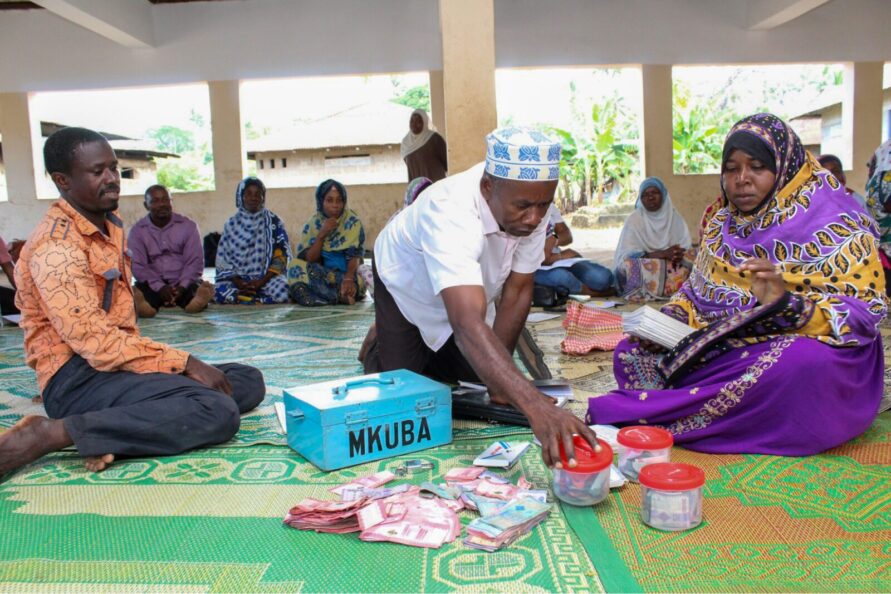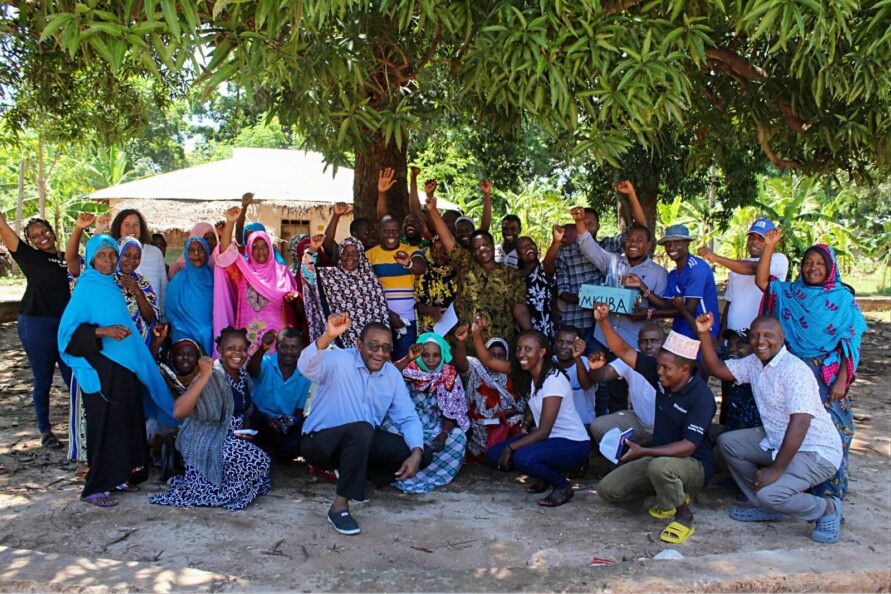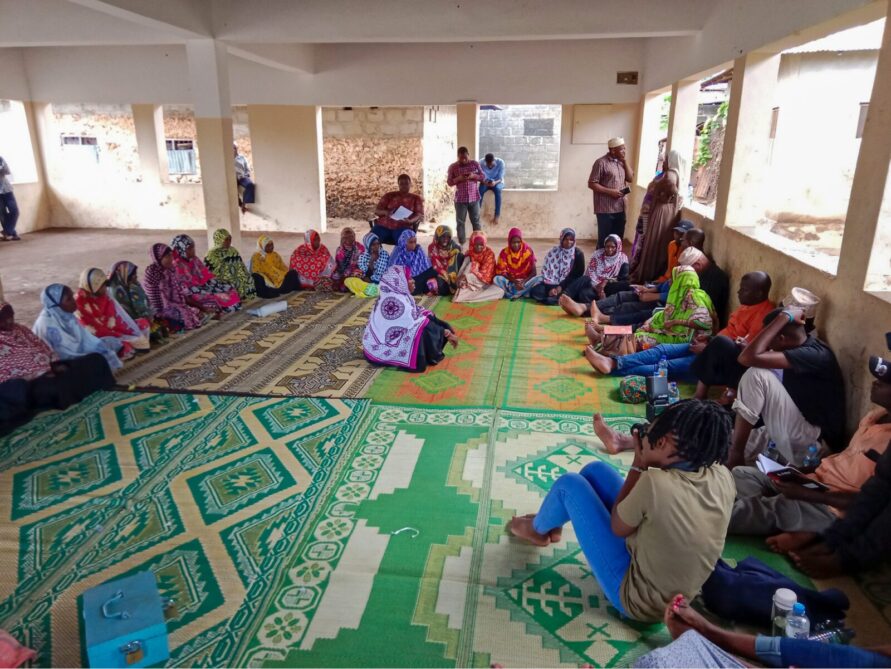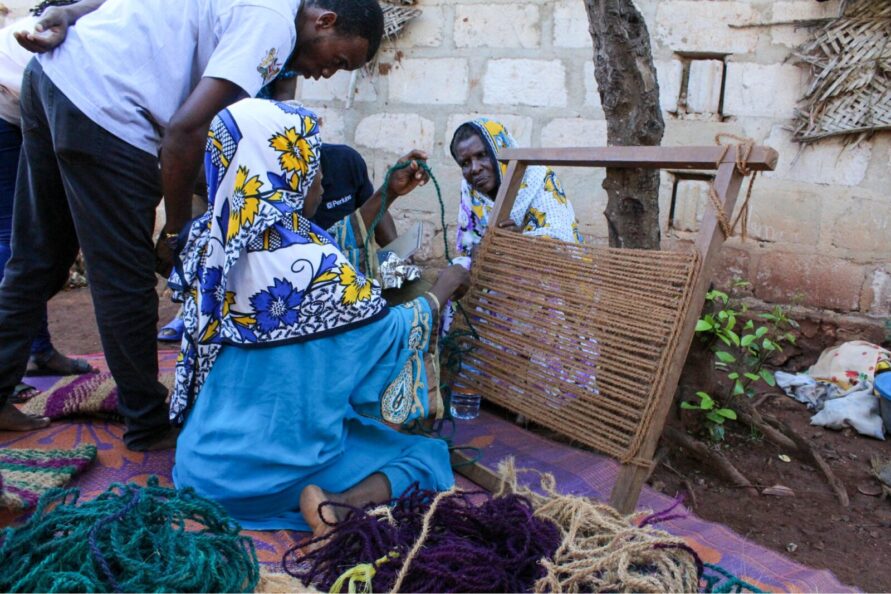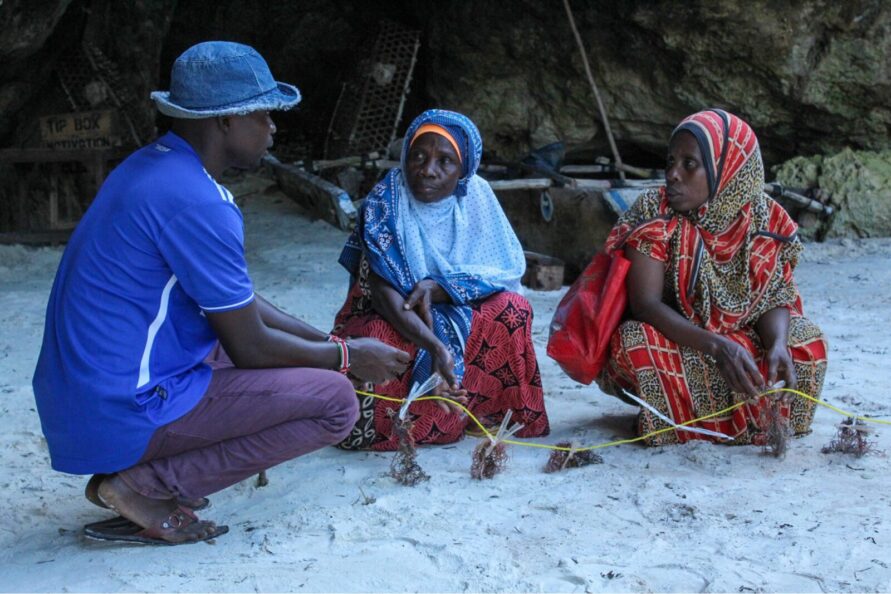About the author: Joan Otengo, Blue Ventures partner support coordinator in Kenya, shares her experiences from the community learning exchange visit to Zanzibar.
It has been two years since we launched the Eco-credit Project in Kwale County, Kenya, a fund providing local fisher communities with accessible and affordable credit facilities to incentivise participation in marine conservation. Over the last year, we aimed to upscale the project due to its popularity and cater to new groups in the county who have expressed interest in it.
One of Blue Ventures’ partners in Tanzania, Mwambao, has successfully supported eco-credit groups in Zanzibar for the last six years. A peer learning visit to Mwambao and communities in Zanzibar allowed Kenyan fisher communities to witness best practices, exchange experiences, and explore new approaches to accessing funds while engaging in conservation. Leveraging the similarities in the East African coastal region, we sought insights into their structure, operations, growth model, and benefits to beneficiaries.
In collaboration with our partner COMRED in Kwale County, representatives from the ten participating community groups and I actively engaged in the learning exchange. During the preparations, I had chats with the members participating in the exchange, who could not contain their excitement at the thought of the peer visit to Zanzibar.
One community member, Mzee Mwinyi, quipped, “I can’t believe I will travel to Zanzibar, which I’ve heard takes two hours by road to Tanga, and then we’ll take a ferry! Participating in the eco-credit work makes it possible for me to visit Tanzania, a dream come true!”
Our first stop in Tanzania was in Tumbatu–Jongwe, on Zanzibar Island, meeting with the Jongwe group established by fishers 20 years ago. The group is renowned for implementing octopus fishery closures, and Mwambao now supports them and five other groups through the eco-credit schemes.
An exciting aspect of the group’s composition was the presence of a religious leader, who expressed how religion is at the forefront of the community’s culture. The committee also includes an environmental officer (community elected) and a public administration leader. Jongwe eco credit is an umbrella body of five eco-credit groups with 250 members. The large membership motivated the Kwale visitors, signifying the community’s strong bond and commitment to growth.
Mwambao helps the eco-credit groups collect data through the CHOMOKA APP, based on the ODK platform. The application sends mobile text messages to members to follow up on their savings and loans. The funds are then accessed during the festive season to motivate the members.
Another savings and loans group on the same island, the Kidikomono women’s group, defied traditions of women not being allowed to fish, making history in 2023 by fishing in the most recent octopus fishery closure opening. It was the first time the group was recognised and granted one day of fishing during the opening, where they caught 108 kgs of octopus. The women were motivated to request to fish during the opening due to the benefits the men gained during the openings, deciding that women deserved the same opportunities.
We headed on to the Nia Njema Beach Management Unit, established 20 years ago in Mtende Village on the north coast of Zanzibar. Nia Njema members are also part of the Mtende eco-credit group. Its committee comprises fishers representing the various fishing grounds. The group’s strength lies in its income-generating activities, which are done individually and as a group. We got to witness the group in action, noting activities like goat farming, the sale of drinking water, retail shops, weaving of mats, ropes and baskets from coconut fruit husks, and the sale of ‘mabuyu’- a famous coastal snack made from the seed of the indigenous Baobab tree and an eco-tourism project within the village.
We met the youth-led eco-credit group from Murumbei village on the third day, who set up fisheries closures. The group has a good rapport with the hospitality businesses, where they participate in joint environmental activities such as beach clean-ups. In return, the hotels and cafes buy the fishers’ catch, which allows the community to renovate schools, their market and other structures.
I noted that the eco-credit objectives and foundations are similar, incentivising conservation. I also observed that eco-credit groups are informal in Zanzibar, while in Kenya, they are required to register with the Department of Social Services to get financial support from the government, NGOs and, to some extent, foundations. Groups in Zanzibar also differ from their counterparts in Kenya since they distribute savings at the end of the year, which is yet to happen in Kenya.
The eco-credit model can be adapted and replicated in various contexts. Involving local leaders is crucial for supporting group operations, and community-based trainers play a vital role as an oversight body during the establishment stage. As the groups grow, it’s essential to connect them with service providers and investors while enhancing members’ capacity in business management.
I’ve learnt that when an organised group demonstrates commitment, selflessness, and stewardship of their fisheries, they can effectively run savings and loan schemes, flourishing with technical assistance. This visit has motivated me to actively promote the replication of eco-credit groups with communities in Kenya.


